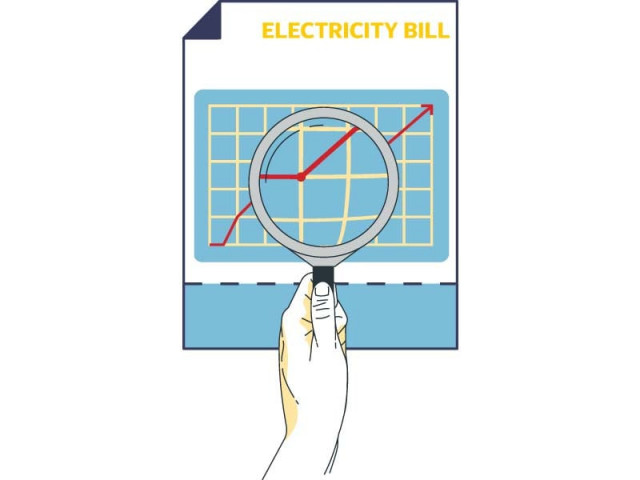Tariff hike sends industrial production cost soaring
Businessmen call tariff rise counterproductive that will render industries uncompetitive

The exorbitant power tariff has increased the cost of industrial production by 25-30% in one go, causing anger among business community and triggering a new wave of inflation in the country.
Talking to The Express Tribune, businessmen called the tariff hike counterproductive, which would render the industry, particularly the export industry, uncompetitive, dent export earnings and make economic survival more difficult.
Thursday’s worrisome incident when a power company’s staff was held hostage by traders in the Timber market, torching of electricity bills and announcement of a civil disobedience movement by not paying the inflated bills in different parts of the country are examples of the pain the business community is enduring.
Read Cost of production up by staggering 100-150%
The situation is emerging at a time when Pakistan’s economy has already stagnated, inflation has hit a six-decade high at 38% in May 2023 and the cost of bank borrowing has surged to a record high of 22%.
Reports suggest that the caretaker government is considering further increasing the tariff soon.
The business community was of the view that the government could mobilise the required resources through increasing the number of taxpayers, reducing line losses and power theft, and ending exemptions to narrow the fiscal deficit instead of increasing the power tariff.
Caretaker Prime Minister Anwaarul Haq Kakar has summoned an emergency meeting with power companies and other stakeholders on Sunday to assess the available solutions. The Sunday meeting forced the Karachi Chamber of Commerce and Industry (KCCI), a leading trade body in the city, to postpone its emergency huddle on Monday where a strategy was to be developed to get rid of the expensive bills.
The government has increased the base power tariff by Rs7.50 per unit with effect from July 1, 2023. With that, the exorbitant utility bills forced traders, businesses and households to take to the streets in protest where they demanded the caretaker government review the tariff hike decision.
Pakistan Business Council (PBC) CEO Ehsan Malik said the last increase in power tariff left the industrial sector, particularly the export industry like textile, uncompetitive in comparison to regional competitors. “This may lead to the loss of more export orders and render many more people jobless.”
Despite the tariff surge, he said, power companies would not be able to recover the targeted revenue loss of around 28-30%. At the same time, it will force many consumers to stop paying their bills, which have become unbearable.
He asked the government to undertake fundamental reforms in the power sector to make electricity affordable. “For this, a strong elected government is required.”
Besides, the government should launch a crackdown on the habitual power bill defaulters like putting them behind bars. Former KCCI president Majyd Aziz said the latest increase in power tariff would prove counterproductive as it “has taken the cost of industrial production up by at least 30% or more in one month”.
Read more Output of big industries dives 21%
He pointed out that a large number of industrial units had closed down in the past one year due to the government’s strategy to cool the overheated economy. “Not a single company is operating at 100% production capacity these days.”
He recalled that there used to be a large sea of working women in Karachi’s SITE industrial area, a textile zone, during office hours several months ago, but now, “a few such women are seen”, signalling the closure of manufacturing units.
He stressed that the business community had the power to persuade the government to change its decisions and for that they should stand united.
Very recently, the business community played a role in preventing Tabish Gohar from becoming the caretaker power minister. Similarly, a couple of years ago, they forced the then government to remove former Federal Board of Revenue (FBR) chief Shabbar Zaidi.
Korangi Association of Trade and Industry (KATI) former president Sheikh Umer Rehan said industrialists would not close factories, but they would pass on the increase in the cost of production to end-consumers that would result in a new wave of inflation.
He believes that the recent hike in power tariff and petroleum product prices and unavailability of natural gas to industries have jolted the export sector. “Pakistan’s economic survival lies in revival of exports. Compromising export earnings would keep the economy worsening,” he suggested and urged the government to announce a new oil and gas exploration policy to find new deposits and make energy cheaper.
Published in The Express Tribune, August 27th, 2023.
Like Business on Facebook, follow @TribuneBiz on Twitter to stay informed and join in the conversation.





1733130350-0/Untitled-design-(76)1733130350-0-208x130.webp)












COMMENTS
Comments are moderated and generally will be posted if they are on-topic and not abusive.
For more information, please see our Comments FAQ